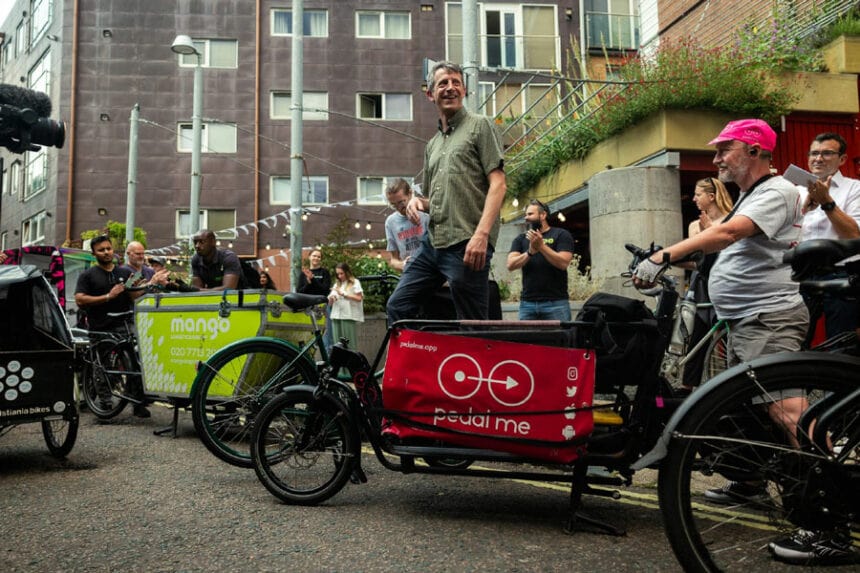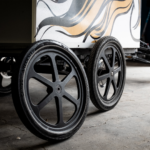COVID prompted a significant increase of online shopping, leading to more deliveries and potentially more pollution and traffic. Could cargo bikes be the green solution organisations are looking for? International Cargo Bike Festival founding-director Jos Sluijsmans and co-organiser Tom Parr think so and ‘declared the 2020s the Decade of the Cargo Bike.’
Sales of cargo bikes are thriving, with manufacturers reporting increases of over 50% year-on-year. Cargo bikes are breaking into the mainstream with big companies like Fedex, UPS, DHL, DPD, Amazon and Hermes all introducing cargo bikes to their fleets. Let us examine some reasons why.
They are energy efficient
A study from Velove and the Swedish Energy Agency discovered that e-cargo bikes consume 94% less energy than e-vans. The biggest factor was weight, the e-van was approximately 17 times heavier than the e-cargo bike. Although cargo bikes are also able to take much shorter routes than vans.
They are quicker
Data from a cycle logistics hub in Sydney showed that cargo bikes travelled a third fewer kilometres than vans and took half the time to complete their deliveries. Being able to use bicycle lanes, take shortcuts and park right next to delivery locations all contributed to cargo bikes speed. Van drivers walk approximately one third of their total route.
They have a small footprint
It is become clearer that vehicle tailpipe emissions are not the only contributing factor to air quality. Fine particle NOx emissions from tyre and brake wear can negatively affect air quality and have even shown to cause microplastic marine pollution. Switching from conventional vans to e-vans does not appear to lessen this. The lower weights and speeds of cargo bikes mean their footprint is orders of magnitude lower.
Not only are cargo bikes more cost and environmentally friendly, sales are often subsidised by local, regional and national authorities.
As we move into a new normal, many are hoping to hold onto cleaner air. Cargo bikes are a proven technology that exist right here right now. If you are looking to invest in a mobility solution, consider the humble cargo bike, it is far more powerful that it appears.
Original article first published 7 October 2020 by Tom Parr





